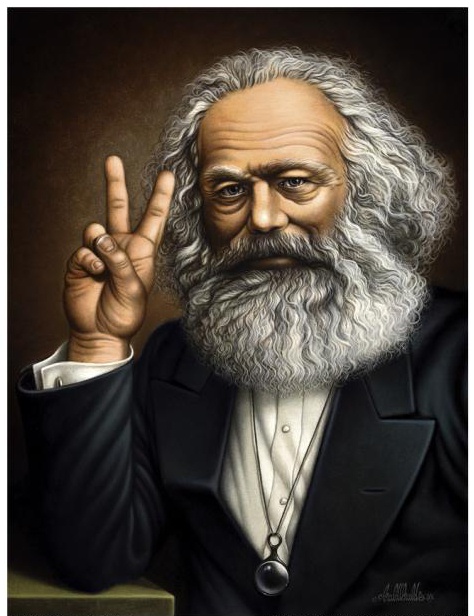|
|
 |
|
This poem is read through the eyes of a Marxist. The Marxist perspective is the thought that the ones with capitol should
control the workers who are trying to gain capitol. The system is set up to have classes. Some of the main ideas in Marxism
is the Exploitation of separate classes. Basically this: Because the ruling class controls the society's means of production,
the superstructure of society, as well as its ruling ideas, will be determined according to what is in the ruling class's
best interests.(Marx)
|
 |
|
Work Without Hope
All Nature seems at work. Slugs leave their lair--
The bees are stirring--birds are on the wing--
And WINTER slumbering in the open air,
Wears on his smiling face a dream of Spring !
And I, the while, the sole unbusy thing,
Nor honey make, nor pair, nor build, nor sing.
Yet well I ken the banks where Amaranths blow,
Have traced the fount whence streams of nectar flow.
Bloom, O ye Amaranths ! bloom for whom ye may,
For me ye bloom not ! Glide, rich streams, away !
With lips unbrightened, wreathless brow, I stroll :
And would you learn the spells that drowse my soul ?
WORK WITHOUT HOPE draws nectar in a sieve,
And HOPE without an object cannot live.
|
 |
|
|
|
 |
|
All nature seems to work. This line is perfect for a marxist.
And WINTER slumbering in the open air,
Wears on his smiling face a dream of Spring
These lines explain that the earth smiles and waits anxiously to switch form winter to spring so it can start working
again.

|
| Probably the coolest picture of Karl Marx |
The lines WORK WITHOUT HOPE draws necker with a sieve,
And HOPE without an object cannot live represent the fact that everyone has to work for something. having hope that things
will get better after putting forth the work is needed in the marxist theory so people will continue to strive for advancement.
|
 |
|
|
|
|
|
This poem from the Marxist perspective is perfect. it is stating that in nature everything has to work.
and animals really have nothing to gain from work but they work anyway. Samuel is saying he cannot work because he's lost
hope and that is something you never want to happen. Especially in the Marxist society.
SOURCES
Toynton,
Evelyn. "A delicious torment: the friendship of Wordsworth and Coleridge.(Critical essay)." Harper's Magazine 314.1885 (June
2007): 88(6). Expanded Academic ASAP. Gale. Century College Library. 6 May 2008
http://find.galegroup.com/ips/start.do?prodId=IPS.
"Coleridge, Samuel Taylor (1772-1834)." DISCovering Authors. Online ed. Detroit: Gale, 2003. Discovering
Collection. Gale. Century College Library. 6 May 2008 <http://find.galegroup.com/ips/start.do?prodId=IPS>.
Marx, Karl The German Ideology Part I: Feuerbach. Opposition of the Materialist
and Idealist Outlook B. The Illusion
of the Epoch
|
|
|
 |

